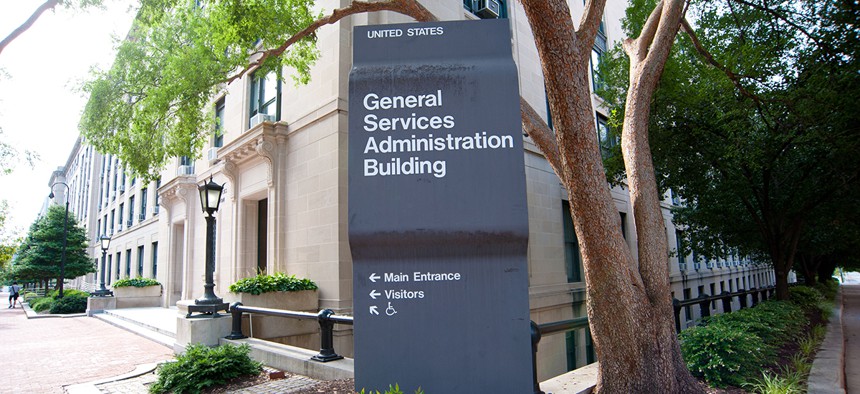New Salesforce Deal Could Change the Way Federal Agencies Buy Tech

Rena Schild/Shutterstock.com
The “build once, use many times” approach could help agencies comply with FITARA, according to GSA.
A federal effort to consolidate Salesforce-related contracts may be the first step toward centralizing more government technology purchases, according to GSA officials.
Last month, the General Services Administration awarded six companies spots on a blanket purchase agreement to sell Salesforce integration and support services to the government. The BPA represents an attempt to eliminate redundant Salesforce-related services across federal agencies by unifying the system through which they’re purchased. The deal also encourages agencies to share the Salesforce applications they build, GSA officials said during a media conference call Wednesday.
Essentially, a 5-year contract with an estimated total maximum value of $503 million, the BPA includes Accenture, Acumen, Capgemini, Deloitte, PhaseOne and PricewaterhouseCoopers.
The “build once, use many times” approach could help agencies comply with the Federal Information Technology Acquisition Reform Act, said Mary Davie, GSA’s assistant commissioner in the agency's Federal Acquisition Service. Congress approved the legislation, which requires agencies to reduce their IT spending, in December 2014.
The agreement doesn't explicitly force agencies to use it, or preclude agencies from completing their existing contracts with other vendors, officials said. But centralizing buying has its own risks, according to one analyst, including the potentially limiting the range of companies agencies can choose to work with.
GSA officials want agencies to pool their applications in a common code repository, called GSA Labs, which for now focuses heavily on Salesforce, according to Megan Schmith, GSA’s director of enterprise application development and platform strategy.
Federal agencies could save 50-80 percent on development costs for applications by finding “existing applications or code snippets” on GSA Labs, U.S. Chief Acquisition Officer Anne Rung wrote in a blog post last month announcing the deal.
The Department of Health and Human Services has about 70 or 80 Salesforce applications, so it “makes it substantially easier for the various operating divisions to really hone in on one [contracting] vehicle," said Mark Nagger, an IT vendor management specialist at HHS, during the call.
The BPA focuses on Salesforce support vendors because federal agencies specifically requested it, Davie said. But there may be more such agreements with other companies in the next few years. She said GSA plans to measure the success of the BPA by examining agencies’ spending and any potential reduction in administrative costs, among other metrics.
The federal government has experimented with such agreements in the past and it hasn’t always worked, according to independent procurement analyst Brian Friel.
“For probably for the better part of 20 years, the general trend in federal procurement has been toward decentralization and empowerment of agencies to buy things on their own,” Friel said. In the 1970s and 1980s, federal agencies had attempted a more centralized approach, but it “often proved to be really slow and bureaucratic, and it didn’t match up with agency needs," he said.
Today, as agencies including the departments of Defense and Homeland Security are opening outposts in Silicon Valley to connect with new, potentially undiscovered tech talent, there’s a risk that more “centralized systems can work against the kind of innovation because it locks in relationships” with established contractors, he added.
The BPA could, however, boost Salesforce's federal business “because it creates a central way for agencies to buy from them and … gives them access to a greater pool” of customers, Friel said.
Based on a simple keyword search for "Salesforce" in the Federal Procurement Data System, contracts requiring Salesforce-related skills amounted to about $32 million in 2015, up from about $12 million in 2014, Friel said.
In at least one case, a broad buying agreement was halted by protests from other companies claiming it put them at a competitive disadvantage. Last year, a DOD licensing agreement with VMware was suspended after several competitors protested.
In a statement emailed to Nextgov, Dave Rey, executive vice president for public sector at Salesforce, said: "Governments are moving from paper forms to apps and from closed systems to knowledge sharing across departments … We're thrilled that this BPA will help accelerate digital transformation in government."
(Image via Rena Schild/Shutterstock.com)





